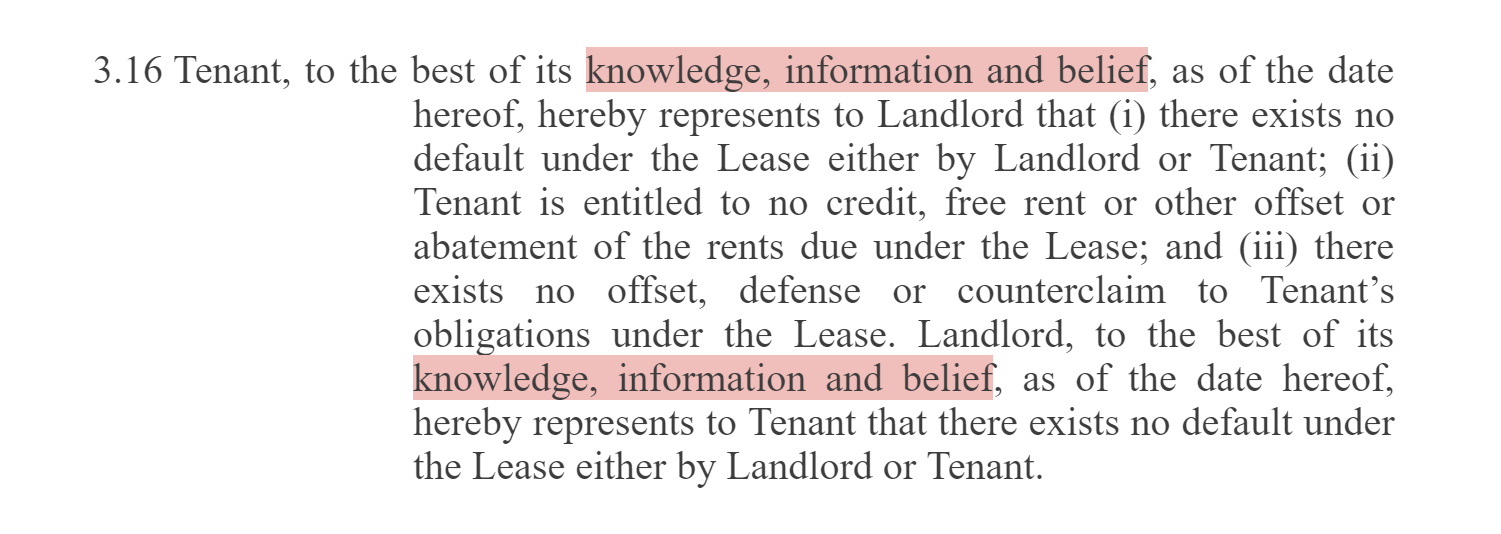Sometimes inspiration comes from unlikely sources.
Here’s an exchange I saw on Twitter:
“Upon information and belief” is how a great deal of attorneys begin interrogatory answers or open paragraphs in complaints or motions…this suggests to me that a lawyer crafted this tweet, which is frightening in itself…
— Liz Homsy (@Lizzidi) April 1, 2020
I agree that on information and belief is the stuff of brain-dead pleadings. But I wanted to see what I could find on EDGAR, the SEC database where public companies file their “material contracts.”
I found a few hundred instances of just information and belief. Here’s one:
But I found a lot more instances of knowledge, information, and belief:
Perhaps what we have here is cross-contamination from litigation into contracts. Sure, knowledge on its own works fine. Indeed, it can be used to express a range of different meanings (see for example this 2016 blog post). But the legalistic mind can’t resist throwing in extra words. Consider it a specialized form of FOMO—fear of missing out. (For more about that, see the post before this one, here.) The result is phony pomposity of the sort prized by the legalistic mind. And if those extra words come from a field other than contracts, what of it!
The effect is stultifying, another instance of a process that, cumulatively, has smart people churning out pernicious nonsense.



I can’t give chapter and verse, but I think ‘information and belief’ comes up in contexts that require contrasting ‘personal knowledge’ with ‘information and belief’.
The distinction is relevant in (1) affidavits that must be on personal knowledge but the affiant wants to state something beyond her personal knowledge, while making clear that she is doing so, and (2) pleadings in forums requiring ‘verified’ (sworn) pleadings, for the same reason.
The only reason I can think of for using the formula in a contract is to specify the level of certainty required of statements being made in, or to be made under, the contract, including affidavits parties might have to supply upon the occurrence of specified conditions (claim, loss).
The triplet ‘knowledge, information, and belief” would be justified (if ever) only when a stated conclusion is based in part on the declarant’s personal knowledge and in part on other information. I suspect it is used mostly outside that limited area, as part of lawyers’ love of triplets generally and, as you say, for the sake of wearing mysterious sacerdotal robes made of words to impress the rubes.